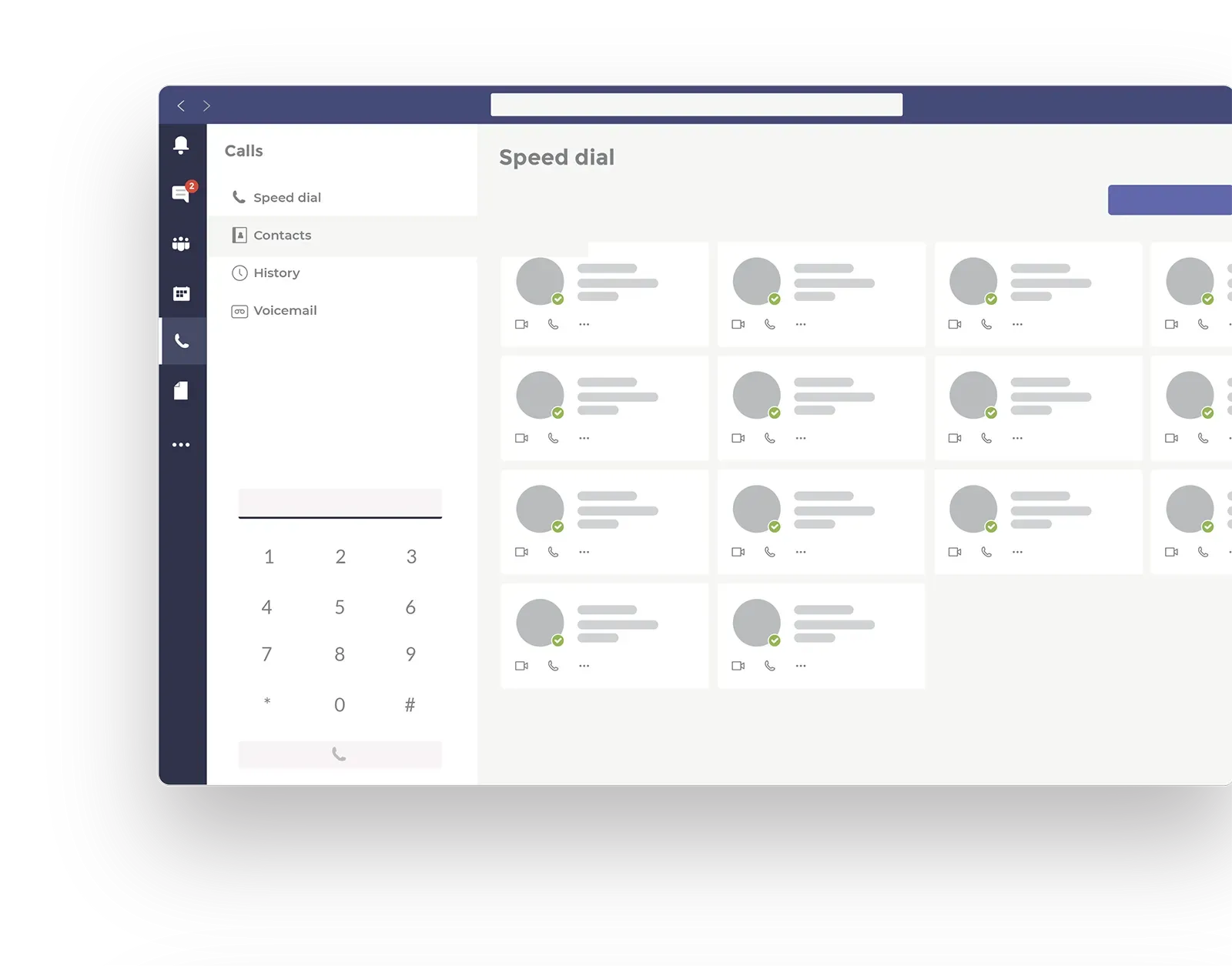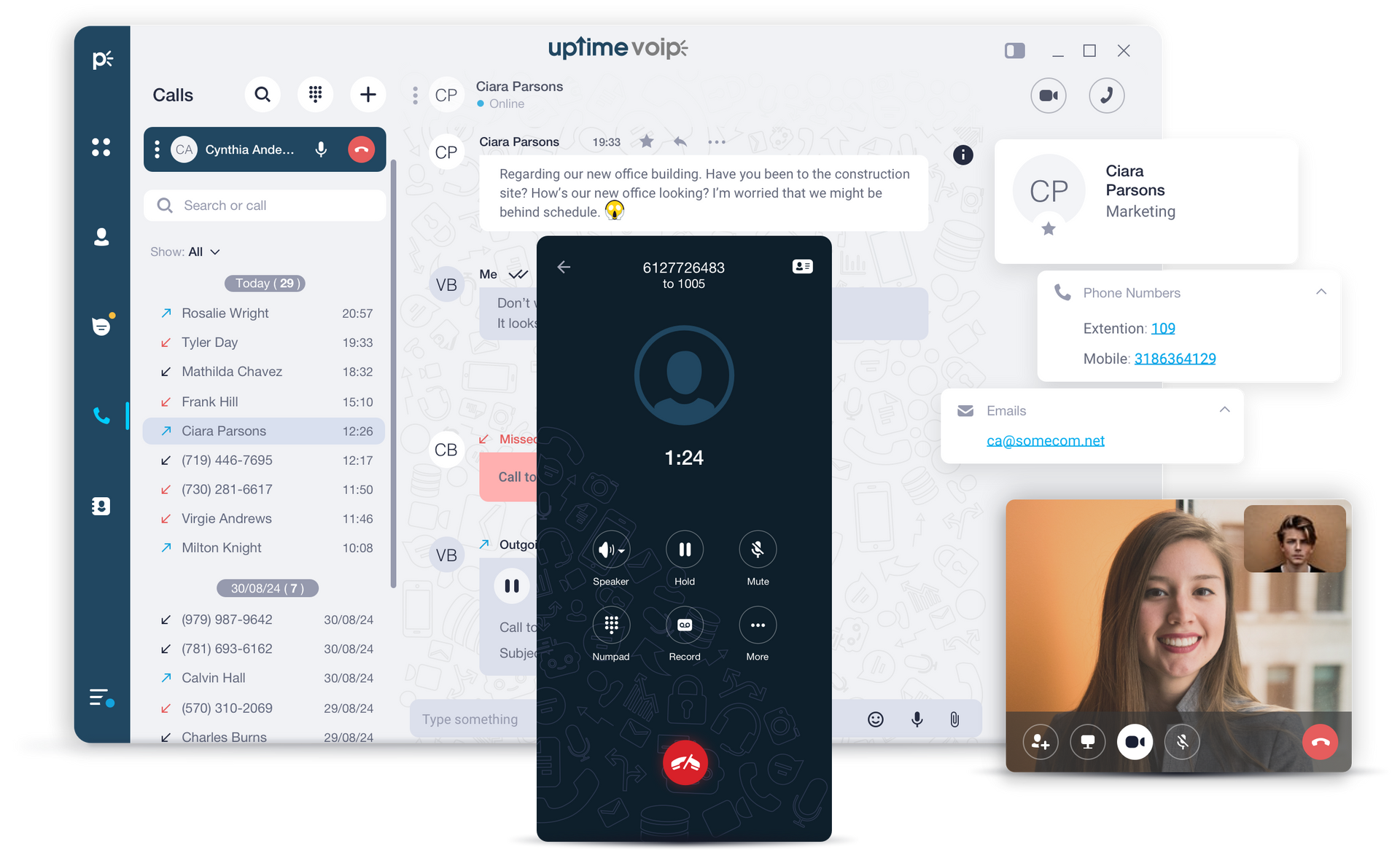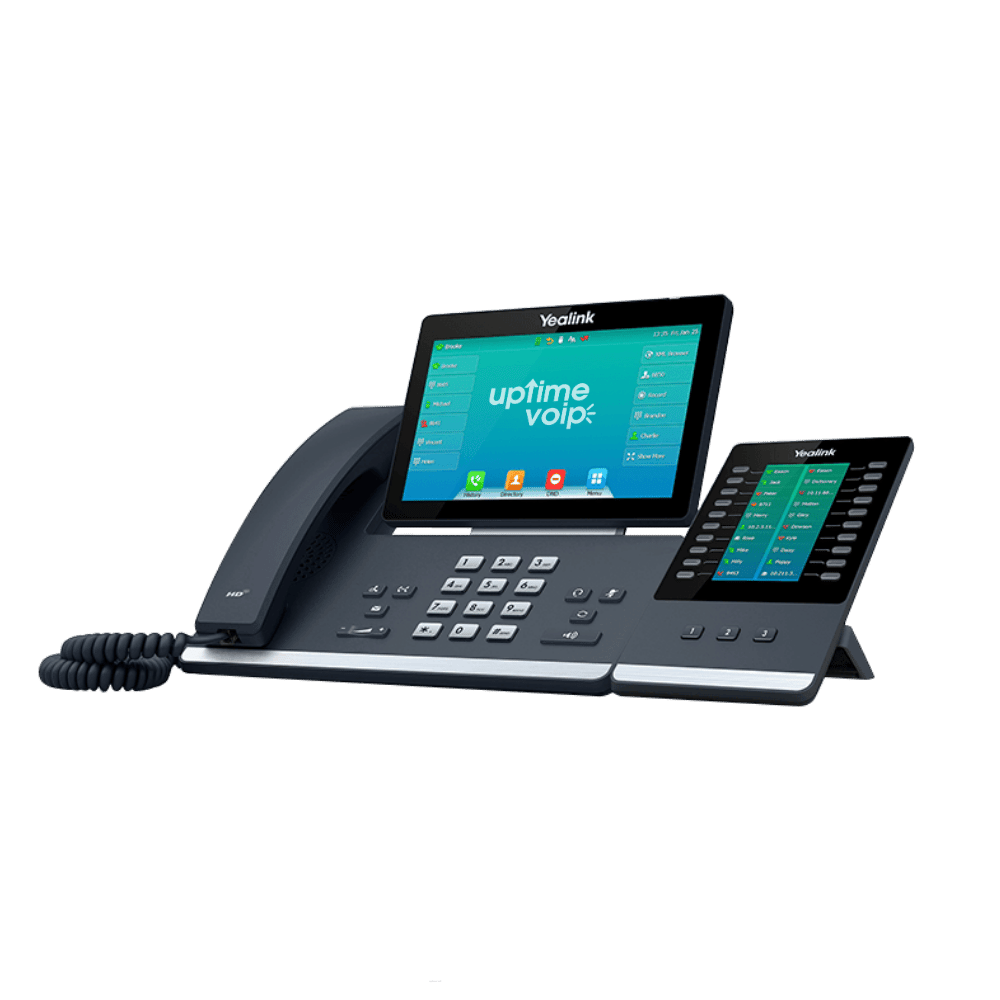By Blaine Yeager
•
September 25, 2024
Choosing the Right Phone System for Small Businesses Choosing the right phone system is crucial for small businesses. It's more than just a tool for making and receiving calls. A good phone system can streamline operations, improve customer service, and even boost sales. It's a key part of your business infrastructure. But with so many options out there, how do you choose the right one? What features should you look for? What's the difference between a traditional landline and a VoIP system? In this article, we'll guide you through the process of choosing the right phone system for your small business. We'll cover everything from understanding the basics to evaluating advanced features and cost considerations. Whether you're just starting out or looking to upgrade your current system, this guide will provide you with the information you need to make an informed decision. Understanding Small Business Phone Systems A phone system is more than just a means of communication. It's a vital part of your business operations. It connects you with your customers, partners, and team members. In today's digital age, phone systems have evolved beyond traditional landlines. They now offer a range of features designed to improve efficiency and productivity. These include call forwarding, voicemail, conferencing, and more. But not all phone systems are created equal. The right one for your business will depend on a variety of factors, including your specific needs, budget, and future growth plans. The Importance of Reliable Communication Reliable communication is the backbone of any successful business. It's how you build relationships with your customers and collaborate with your team. A good phone system ensures that you're always reachable. It minimizes downtime and ensures that no call goes unanswered. This can greatly enhance your customer service and overall business reputation. In short, investing in a reliable phone system is investing in your business's success. Traditional Landlines vs. VoIP Systems Traditional landlines have been the standard for business communication for many years. They're reliable, but they lack the flexibility and features of modern systems. VoIP (Voice over Internet Protocol) systems, on the other hand, use the internet to make and receive calls. This allows for greater flexibility and a host of advanced features. Plus, they're often more cost-effective than traditional landlines. However, VoIP systems rely on a stable internet connection. So, if your business is in an area with poor internet connectivity, a traditional landline might be a better option. Key Features of Small Business Phone Systems When choosing a phone system, it's important to consider the features it offers. These can greatly impact your business's efficiency and productivity. Basic features like call forwarding, voicemail, and conferencing are a must. They ensure smooth communication within your team and with your customers. But there are also advanced features to consider. These can provide added value and enhance your business's performance. Must-Have Features for Efficiency and Productivity Here are some must-have features for any small business phone system: Call forwarding: This allows you to redirect incoming calls to another number. It's useful for managing calls when you're out of the office or during busy periods. Voicemail: This feature allows callers to leave a message when you're unable to answer the phone. It ensures that you never miss important calls. Conferencing: This allows multiple people to participate in a phone call. It's essential for team meetings and discussions with clients. Advanced Features for Enhanced Performance Advanced features can take your phone system to the next level. Here are some to consider: Unified communications: This integrates various communication methods, such as voice, video, and instant messaging, into one platform. It can greatly improve collaboration and efficiency. Mobile integration: This allows you to use your phone system on your mobile device. It's ideal for remote work and business travel. Call analytics: This provides data on your call activity. It can offer valuable insights into your business operations and customer behavior. Types of Phone Systems: PBX, VoIP, and Cloud-Based Solutions There are several types of phone systems suitable for small businesses. Each has its own set of features and benefits. PBX, or Private Branch Exchange, is a private telephone network used within a company. It allows for the sharing of multiple phone lines for making external calls. VoIP, or Voice over Internet Protocol, uses the internet to make and receive calls. It's a flexible and cost-effective solution, especially for businesses with remote workers. Cloud-based phone systems, also known as hosted PBX or hosted VoIP, are provided by a third-party service provider. They offer scalability and require minimal maintenance. Pros and Cons of On-Premise vs. Cloud-Based Systems On-premise phone systems are installed and maintained at your business location. They offer more control but require a significant upfront investment. Cloud-based systems, on the other hand, are hosted by a service provider. They require less upfront cost and offer greater flexibility and scalability. However, they rely on a stable internet connection. This can be a disadvantage in areas with poor internet connectivity. Why Cloud-Based Systems are Gaining Popularity Cloud-based systems are gaining popularity for several reasons. They offer flexibility, scalability, and cost savings. With a cloud-based system, you can easily add or remove users as your business grows. You also avoid the cost and hassle of maintaining hardware. Moreover, cloud-based systems allow for remote work. This has become increasingly important in the wake of the COVID-19 pandemic. Avaya Small Business Phone System: A Closer Look Avaya is a renowned provider of business communication solutions. They offer a range of phone systems tailored to small businesses. Their systems are known for their robust features and reliability. They offer both on-premise and cloud-based solutions to cater to different business needs. "" Features and Benefits of Avaya Systems Avaya systems come with a host of features. These include call forwarding, voicemail, conferencing, and automated attendants. They also offer unified communications solutions. This integrates various communication methods, enhancing efficiency and productivity. Moreover, Avaya systems are user-friendly and come with excellent customer support. This makes them a popular choice among small businesses. Choosing a Phone System: Factors to Consider Choosing the right phone system for your small business is a crucial decision. It can significantly impact your operations and customer service. Several factors need to be considered. These include your current and future business needs, cost, and compatibility with existing systems. It's also important to consider the provider's reputation and support services. A reliable provider like Avaya can offer peace of mind. Finally, consider the system's scalability. As your business grows, your phone system should be able to grow with it. Assessing Your Business Needs and Growth Potential Understanding your business needs is the first step in choosing a phone system. Consider your call volume, the number of employees, and the features you need. Call volume: Do you make a lot of calls? A system with unlimited calling might be best. Number of employees: The more employees you have, the more extensions you'll need. Features: Do you need advanced features like call forwarding, voicemail, and conferencing? Also, consider your growth potential. If you plan to expand, choose a system that can scale with your business. Cost Considerations and ROI Cost is a major factor in choosing a phone system. However, it's not just about the upfront cost. Consider the total cost of ownership. This includes the cost of the system, installation, maintenance, and upgrades. Also, consider the potential return on investment (ROI). A more expensive system might offer features that can boost productivity and customer service, leading to higher profits in the long run. Conclusion: Making an Informed Decision Choosing the right phone system for your small business is a significant decision. It requires careful consideration of your business needs, cost, scalability, and the reputation of the provider. By making an informed decision, you can ensure a reliable communication system that supports your business operations and growth.












